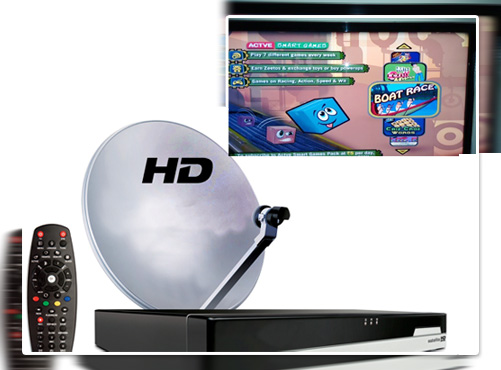It's airwaves scam now!

After the multi-crore Spectrum scam that rocked the nation, it is now the turn of “airwaves” scam, involving private Direct-to-Home (DTH) operators who are understood to be making huge money through advertisements by blatantly violating the rules of the Union Ministry of Information and Broadcasting and guidelines of Telecom Regulatory Authority of India (TRAI).
AFTER SPECTRUM
A public interest litigation filed by Media Watch India, an NGO, against the exploitative practices by private DTH operators is coming up for hearing before Delhi High Court on July 29. And, the government has acknowledged the serious breaches of rules by the DTH operators, but has surprisingly remained silent. DTH technology enables direct beaming of broadcast signals to television sets of customers. At present, there are seven DTH service providers in the country, six in private sector – Dish TV, Tata Sky, Airtel Digital, Reliance Digital, Videocon D2H and Sun Direct and one by Doordarsan – DD Free Dish.
According to TRAI, by the end of 2014, India has around 73 million private DTH subscribers, out of which 40 million are active. The DTH services are governed by two important regulations: Guidelines for obtaining license for providing Direct-to-Home (DTH) Broadcasting Service in India, 2007(Notified and enforced by Ministry of Information & Broadcasting) and Direct to Home Broadcasting Services (Standards of Quality of Service and Redressal of Grievances) Regulations, 2007 (Notified and enforced by TRAI).
According to the guidelines, the DTH operators are not supposed to downlink a channel, which has not been registered by I&B; Ministry. Further, they should not carry or include in the DTH service any television broadcast or channel which has not been registered by the Central Government. As such, the DTH operators are licensed only for carriage and distribution of channels duly registered with Central Government.
Despite this, all private DTH operators are merrily broadcasting their “own” channels with 24/7 advertisements, self-promotional messages and teleshopping spots. These “default/home” channels which start as soon as one turns on TV/Set Top Box (STB), have no registration or whatsoever with the government. Some DTH operators have gone a step ahead and programmed their set-top-boxes in such a way that the remote control device is made defunct for first few seconds so that the customer is forced to watch the �?default’ ad.
Unauthorised �?Value Added Services’
Apart from carrying registered TV channels, any other service, facility or communication through DTH platform constitutes “Value-Added Service.”These services include interactive services like Movie on Demand (MOD), games, puzzles, facilities like Electronic Programme Guide (EPG) etc. As per the I&B; ministry guidelines, the private DTH operators should take specific licence for providing these “Value-Added-Services” also, so that they would not trespass into the domain of regular broadcasting.
An RTI query with the ministry has revealed that it has not granted any such licences to any of the DTH operators for telecasting these Value-Added Services. It shows that all these services presently offered by DTH operators are unlicensed and hence illegal. All DTH operators are inserting ads and other unsolicited self-promotional messages blocking the TV screen, such as unsolicited �?pop-up’ ads, continuous �?L-shaped’ ads in movie-on-demand channels etc.
This rampant practice is adversely affecting the viewing experience of millions of DTH customers who are already harassed with distracting �?part-screen’ ads and scrolls in regular TV channels. “This is not only a gross violation of Advertisement Code (Rule 7(10)), but tramples upon audience’ �?right to privacy,”says Edara Gopichant, vice-president of Media Watch India, who filed the PIL in Delhi High Court. The Advertisement Code (Rule 7(11)) also mandates that no TV channel can carry advertisements exceeding twelve minutes per hour.
While carriage of their own channels itself is illegal, the DTH operators are airing continuous ads on 24/7 basis, thus making an open mockery of the said �?12-minute’ rule. The TRAI has issued two consultation papers on the regulatory framework for DTH services, one in 2009 and the latest in June 2014; and acknowledged that �?channels which are being operated by DTH operators need to be registered.’ In November 2014, the TRAI gave its recommendations putting forth requirements before allowing DPO’s to transmit their own channels/services. But, the I&B; Ministry is said to be sitting over these recommendations.
-
Related News
-
More from Metro India

